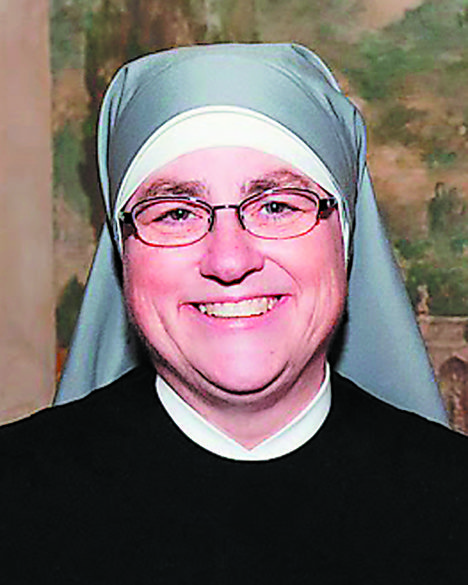
GUEST COLUMN
By Sister Constance Veit, l.s.p.
For the past year, we Little Sisters of the Poor have been celebrating the 150th anniversary of our Congregation’s arrival in the United States.
Our sesquicentennial year will officially close on August 30, the feast day of our foundress, Saint Jeanne Jugan. This anniversary has been a wonderful opportunity to rediscover the experiences of our pioneering Little Sisters and to become acquainted with the many people who helped them.
As I read through the annals of our first communities, I recognized a pattern. Beginning in August of 1868, small bands of mostly young, non-English speaking Little Sisters bravely set sail from France destined for one American city after another – first Brooklyn, then Cincinnati, New Orleans, Baltimore and Philadelphia. The wave of charity, which had begun in the humble heart of our foundress, quickly spread across this vast nation.
These Little Sisters would arrive at their destination with only the most basic provisions, taking possession of empty, often dirty or rundown buildings that had been procured for them. They would begin by placing statues of the Virgin Mary and St. Joseph that they had preciously carried from the motherhouse on a mantle and then kneeling in prayer to ask God’s blessings on their new dwelling and those who would make it their home.
Thanks to hard work and the generosity of local citizens, these empty buildings would soon be cleaned and furnished with everything needed to care for the destitute elderly who would arrive at their doorstep.
In each city the Little Sisters were assisted by local clergy and communities of women and men religious.
The very first donation the Sisters received in this country was a twenty dollar bill from Father Isaac Hecker, founder of the newly-established Paulist Fathers.
The Sisters were also generously supported by the laity – people of all ages and every social status, Catholic and non-Catholic alike. Local school children brought their meager offerings – a few dishes or a loaf of bread.
In Cleveland, a German family put themselves completely at the service of the Little Sisters as a way of paying back a debt owed to God. Boston’s wealthiest woman brought the elderly rosaries, fresh oranges and good wine. Louisville’s best hotel donated a restaurant-quality Christmas dinner. In Philadelphia, three wealthy young girls sold their Christmas gifts and donated the proceeds to the Sisters. One of them would eventually become a canonized saint.
In the first months of the foundation in Pittsburgh two young Little Sisters died of typhoid fever in a matter of days. The remaining Sisters were devastated, but the bishop and local religious communities drew close to the newcomers and supported them through their ordeal.
The Little Sisters wrote that God had made use of this tragedy to make their work better known in the city. In fact, our pioneering Little Sisters saw in all the events of their daily lives – and in all the people they encountered – the Providence of God.
If I had to sum up our Congregation’s history in America in one word it would be just that – Providence.
During the very years when our first American foundations were being made, the Fathers of the first Vatican Council wrote, “God in his Providence watches over and governs all the things that he made, reaching from end to end with might and disposing all things with gentleness.” God not only knows what is going on in the world, he directs it all, down to the smallest and most insignificant details, holding everything in existence and guiding it all according to his mysterious plan!
The Fathers of the first Vatican Council taught that God governs the world with gentleness. He is not loud or flashy; he does not get in our face or demand our attention – and this is a problem in our media-saturated, sensory-overloaded culture.
How easy it is to miss the signs of God’s Providence in our lives, to be deceived by his gentleness and to fail to realize that underlying this gentleness is omnipotence. God really is in charge! And he governs all things according to his plan of love!
Our pioneering Little Sisters knew this in the depths of their hearts. In their simple faith they were able to see the traces of God’s Providence in both joys and sorrows, in good times and bad.
This is the most important lesson I have learned during our sesquicentennial year. No matter how dark or fraught with troubles our world may seem, we are all the children of God’s gentle, loving Providence. Let us trust in him!
(Sister Constance Veit is director of communications for the Little Sisters of the Poor.)
